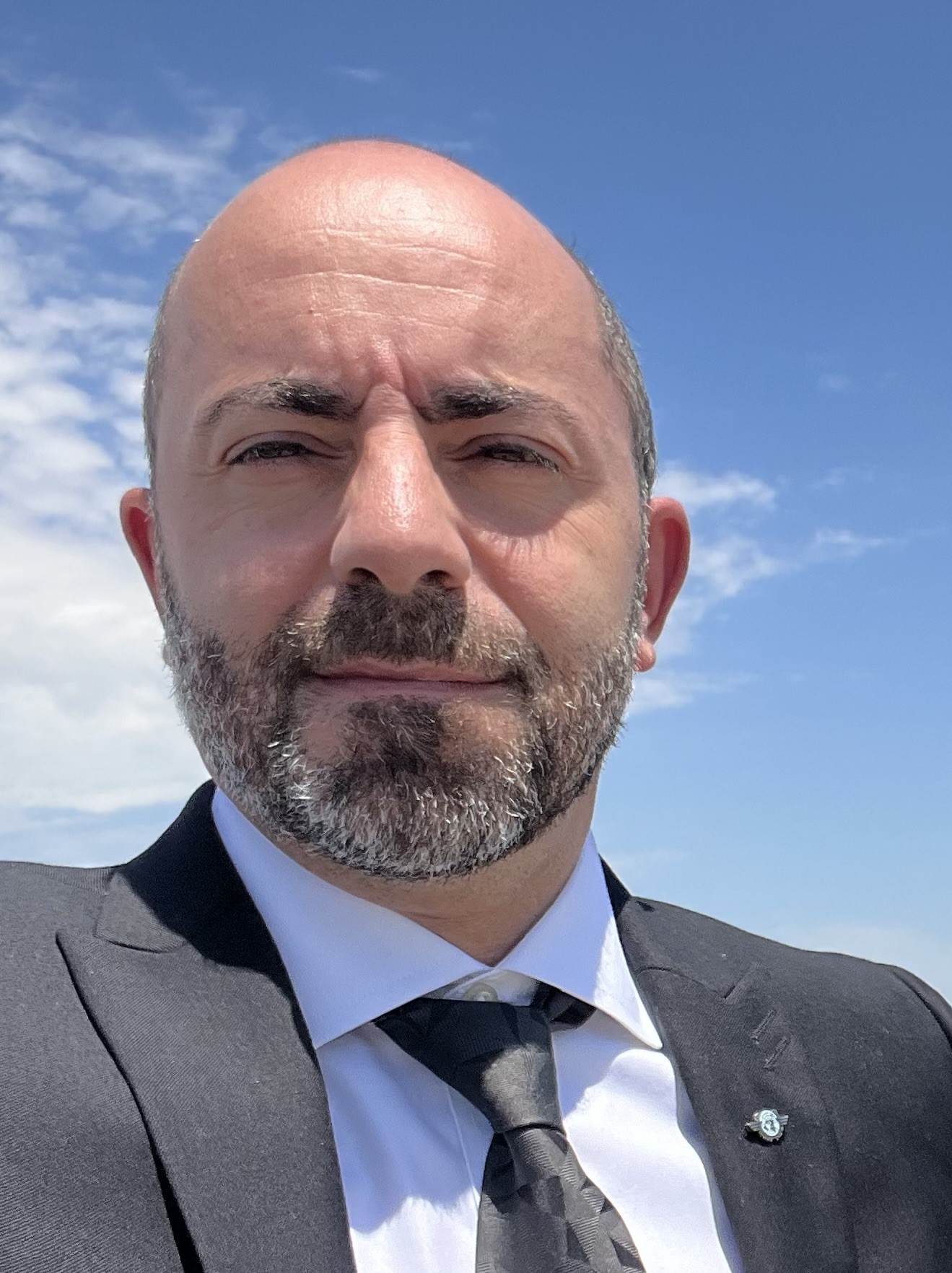Roma, 8 April 2024
Interview with... Nicolas Rallo
Regional Director ICAO EUR/NAT
[Cleared n°3 - anno XXI - March 2024]

How would you describe the activities of the Paris Office of ICAO in such a vast wide and complex area as the “EUR/NAT” area, and what are the key topics you address in your daily activity?
First of all, I wish to thank ENAV for this opportunity to share information on ICAO and its Regional Office in Paris (“European and North Atlantic” or “Paris Office”) and especially for the significant support provided to this office -including by leading or contributing to our regional groups. ICAO has a unique position in the aviation ecosystem and its DNA is informed both by its aviation activities (ranging from global standardization up to auditing/ monitoring and capacity-building) and its status as a United Nations agency. We gather States, organizations and individuals around our “Safe skies, sustainable future” vision: a sustainable aviation system that connects the world for the benefit of all people.
ICAO’s Paris Office is also quite unique. Like the other 6 regional offices of ICAO, it is responsible for liaison with States and regional organizations, as well as regional coordination, planning, monitoring and implementation support activities, for all of ICAO’s Strategic Objectives: safety; air navigation capacity and efficiency; aviation security and facilitation; economic development of air transport; environmental protection. Its uniqueness is linked to its vast, diverse and complex “accreditation” area, serving 2 ICAO regions (the “North Atlantic” and the “European” regions) and a total of 56 States (almost 1/3 of all ICAO Member States), on 3 continents.
International aviation is still facing challenges related to post-Covid and the European region is also affected by several conflicts. What is the role of the ICAO in general and the Regional Office in particular to support aviation?
The world is facing an unprecedented set of challenges, including climate change, increased conflicts and geopolitical tension, pandemics and other major crises that, in addition to directly impacting the lives of billions of people, bring always more instability and unpredictability in all sectors. The global nature of these challenges call for a global and well-coordinated response. The key role of ICAO in helping States, the industry and societies overcome global crises was instrumental and very visible during the COVID-19 pandemic. Climate change is another challenge that can only be effectively addressed through a strong, global response, and we see a growing mobilization of States and stakeholders around ICAO’s Long Term Global Aspirational Goal” (LTAG) of Net Zero CO2 emissions by 2050.
Those challenges also require strengthened crisis preparedness and response. In that respect, we successfully completed last year the update of the European Regional Crisis Management Framework (“Doc EUR 031”), encompassing all types of crises, including public health, volcanic ash and nuclear events, as well as conflict zones and cybersecurity related contingencies. Crises are also an opportunity to transform ourselves and ICAO Secretary General, Mr. Juan Carlos Salazar, has initiated more than 40 projects around a new “Transformational Objective”, contributing to four outcomes: improving how ICAO collaborates, a transformational shift in organizational culture, enhancing operational efficiencies and effectiveness, and embedding simplified, streamlined processes. These projects will also enhance ICAO’s capacity to foster more innovation.
The Paris Office has fully embarked on this transformation and has implemented new approaches to be more State-centric, collaborative, risk-based and action- and result-oriented. We need to avoid duplication of efforts, enhance information-sharing, coordination and cooperation; and explore synergies whenever possible.
ANSPs, together with the other aviation actors, play an important role in aviation and in ICAO activities. What is your view of the role of ANSPs in supporting the evolution of aviation? In addition, what can we expect from the ICAO Air Navigation Conference coming up in August/September this year?
Since I took my functions as the Regional Director, I have interacted with many ANSP leaders and experts across my office’s accreditation area. Everywhere, I have observed their engagement and commitment on all fronts, including resilience, sustainability, innovation, risk management, international/regional cooperation, talent attraction and retention, and competency development, and even gender equality.
We are now preparing for the upcoming 14th Air Navigation Conference. Its theme of “Performance Improvement Driving Sustainability” reflects our intent to reach a consensus on the rapid evolution in aviation operations and technologies and global environmental challenges. This will include the timely and safe use of new technologies and air navigation system performance improvement. It is expected that the discussions will lead to an agreement on a set of high-level recommendations on air navigation and safety, to be submitted for approval to the Council and, when applicable, for subsequent endorsement by the 42nd Assembly in 2025.
At the regional level, we will coordinate and support regional efforts for the implementation of ICAO’s updated policies, provisions and plans. We will continue to invite States and organizations to join forces and partner with us to optimize progress, leaving no country behind. I am confident that Italy, and ENAV in particular, will continue to help us achieve this goal. For that, I wish to express my sincere thanks and appreciation: grazie di cuore!


